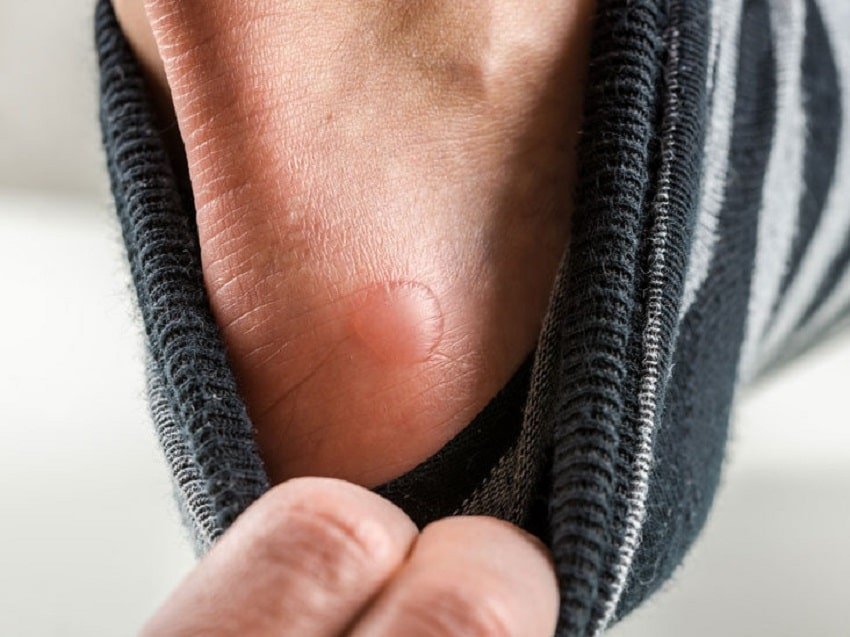Diabetes and sweating
- Although sweating might have a wide range of causes, some derive from diabetes.
- The Three types of problem sweating are:
- Hyperhidrosis. This sort of sweating is not always introduced on by temperature or exercise.
- Gustatory sweating. This sort happens because food which is limited to neck and face areas.
- Sweating. These originate from low blood stream glucose at night time.
Treatment is determined by the type of sweating you’ve. Your personal doctor can suggest the most effective treatment to alleviate or stop your sweating.
Also, since profuse sweating might be a symbol of many other serious conditions, it is advisable to go to a physician to discover the underlying cause.
Hyperhidrosis
Hyperhidrosis can be a term for sweating that isn’t always from exercising or warm temperature. Technically, primary hyperhidrosis is sweating without any known underlying cause.
Secondary hyperhidrosis, also referred to as diaphoresis, may be the word for sweating that’s an indication or side-aftereffect of another factor.
For individuals who’ve diabetes and, along with sweating, you’ve urinary incontinence problems or possibly a unique heartbeat, it could indicate autonomic neuropathy. It is because injury to the nerves that control functions like the bladder, blood stream pressure, and sweating.
Sweating can also happen with being overweight, which regularly includes diabetes. It’s also an undesirable aftereffect of numerous medications, including some prescribed for diabetes.
Gustatory sweating
Gustatory sweating is sweating because of food or eating. While it’s usual to break a sweat while eating spicy food, certain conditions increase this reaction. Autonomic neuropathy could be the underlying cause.
People with diabetic autonomic neuropathy or diabetic nephropathy will probably experience gustatory sweating than individuals without these conditions. In the event you sweat a great deal within your mind and neck region to eat or drink, you’re experiencing gustatory sweating. This may also occur by simply thinking about or smelling food.
Sweating
Sweating are often introduced on by low blood stream glucose, that could appear in people taking insulin or diabetes medications known as sulfonylureas. Once your blood stream glucose drops missing, you’ve created excess adrenaline, which then causes sweating.
Whenever your blood stream glucose returns on track, the sweating should stop. Sweating may have causes unrelated to diabetes, too, for instance menopause.
Many factors can result in night time sweats. Incorporated within this are:
- exercising too close to bedtime
- some types of insulin taken during the night
- consuming alcohol during the night
Blood stream glucose control is the simplest way to manage sweating introduced on by low blood stream glucose. Sometimes, simply modifying your exercise or eating a snack when it is bedtime may help. Your personal doctor can help you improve your diet, exercise, or medications to reduce or eliminate sweating.
Control over sweating
Treating sweating usually requires medications. This can include unwanted effects and various levels of effectiveness. Nearly all are topical or pills, but Botox treatment treatment (botulinum contaminant injection) is often used.
- Medications
- nerve blocking medication
- prescription antiperspirant or creams
- Botox treatment treatment injections
- antidepressants
- Procedures
- sweat gland removal, for issues in armpits only
- iontophoresis, treatment by getting an electric current
- nerve surgery, only if other treatment has not helped
- Change in lifestyle
- placed on clothing (including socks) produced from natural materials
- bathe daily and rehearse antiperspirant
- apply an astringent for the area
- change socks frequently as well as your foot dry
- choose clothes that fit your activity
- try relaxation strategies to reduce anxiety-related sweating
- When to talk to your physician
You have to confer with your physician if:
- sweating is interrupting your wellbeing
- sweating causes you emotional or social distress
- you out of the blue begin to sweat inside your
- you’ve sweating without no reason
Sweating might be a symbol of more serious issues, for instance:
- cardiac event
- some cancers
- nervous system disorder
- infection
- thyroid disorder
You have to go to your physician immediately in the event you have the following signs and signs and symptoms along with sweating. This can be warning signs of some factor serious:
temperature of 104°F or greater
- chills
- chest discomfort
- lightheadedness
- nausea
Your personal doctor might make an analysis based on your background a real exam. Diagnosing may also require applying substances for the skin to produce small amount of sweat appear, or tests to recognize other disorders.
Takeaway
While sweating can occur in anybody, some causes are proportional to diabetes. It’s crucial that you go to a physician and uncover the primary cause. Those who sweat a great deal tend to be susceptible to skin condition and could experience emotional and social distress from embarrassment.
Sweating can also be a sign of an even more serious condition. If you’re getting difficulties with abnormal sweating, confer with your physician. Several medications, and combination treatments, are available and is proficient at getting sweating under control.
It may be helpful to speak with others regarding own encounters with diabetes type 2 symptoms. Our free application, T2D Healthline, connects you with real people dealing with diabetes type 2 symptoms. Ask symptom-related questions and speak with individuals that get it. Download the applying for iPhone or Android.

